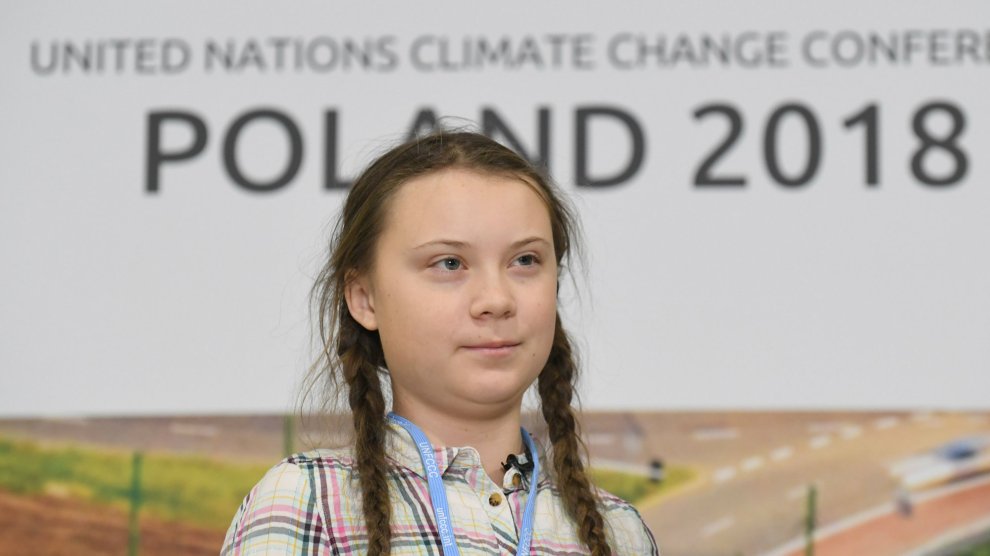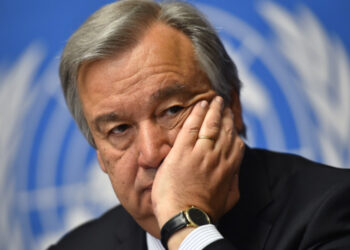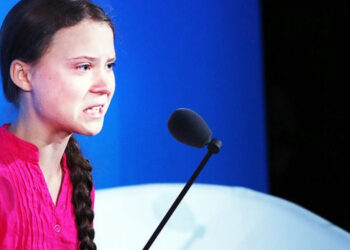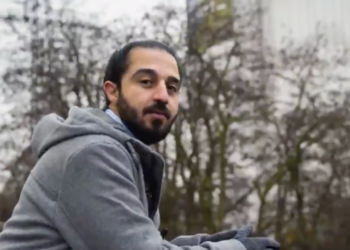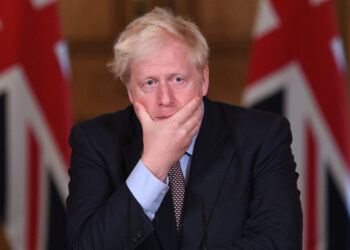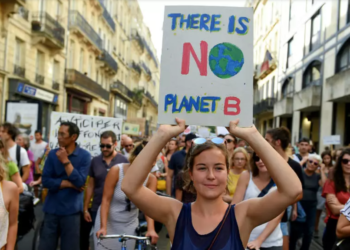German Chancellor Angela Merkel conceded Friday that her government was driven to act faster on climate change by young activists like teenaged Greta Thunberg, who was speaking at rally in Berlin the same day.
“They certainly drove us to speed up” efforts to change policy, said Merkel at a press conference while nearby in the German capital the 16-year-old Swedish activist addressed the latest “Fridays for Future” rally.
“The seriousness with which Greta, but also many, many other young people, are telling us that this is about their lives, and that their life spans extend further, has led us to approach the matter more resolutely,” said Merkel.
She said that her cabinet planned to decide on key steps for a new climate law, including a likely carbon pricing mechanism, at a September 20 meeting.
Thunberg and other activists, along with leading climate scientists, say far broader global action is necessary.
Thunberg, meanwhile, addressing student activists who have regularly skipped school to protest, made another passionate appeal to their elders to urgently act on climate change.
London #YouthStrike4Climate turns out strong even in the heavy rain!#ClimateJustice pic.twitter.com/ofFRuZ2ZpN
— Jake Woodier (@JakeWoodier) July 19, 2019
“We need to make sure that people save the world and save humankind,” she said about global warming which is melting ice caps and glaciers, rising ocean levels and exacerbating extreme weather events.
“This situation is so strange – that the adults do not dare to take responsibility, that it is the young people and children who need to take responsibility, that young people need to sacrifice their education in order to protect their future.”
“Please help us, we can’t do this alone, we beg you for help.”
Weather ‘Unsettling People’
Climate change has become a top public concern in Germany, with the opposition Greens party shooting up to poll neck-and-neck with Merkel’s conservatives earlier this year.
Especially since last year’s scorching summer – when drought damaged German agriculture, forest fires raged and shipping was halted on dried-out rivers – many voters see global warming as the number one problem.
Merkel said that Germany’s recent “exceptional weather conditions” were “unsettling people and showing the cost of non-action or insufficient action” to combat the problem.
Germany, Europe’s biggest economy, has long promoted clean renewables such as solar and wind while phasing out nuclear power.
However, it is missing its 2020 climate goals mainly because of a reliance on cheap coal mined domestically and slow progress in green mobility and building insulation.
Merkel’s government has pledged to phase out coal by 2038, a deadline which the protest movement rejects as far too distant.
The chancellor also acknowledged that the Greens party is currently “very strong.”
But she said that this was forcing her party “to show that we are meeting our climate change targets, yet are also committed to innovation and committed to economic progress.”


